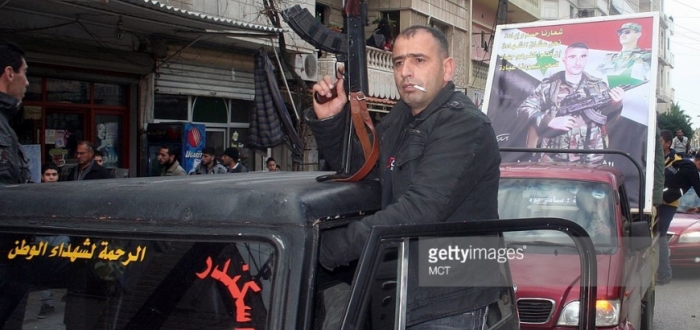Government and pro-Assad media rarely talk about the coastal province of Tartous, where the regime is draining it of its youths by sending them to fight in battles against the Islamic State (ISIS) in Homs.
It is official regime policy to never reveal the true number of dead soldiers, but pro-regime pages on social networks published photos of dozens of soldiers from Tartous who were killed during the recent battles. One of the most active pages was "The martyrs of Tartous are the source of pride and dignity," which publishes daily pictures of dead soldiers from Tartous and its countryside.
Rarely a day passes without a picture or post mourning two or three soldiers. After observing activity on the page for some time, Al-Souria journalists believe there are signals that the number of dead have increased during the recent battles against ISIS in Palmyra and Qaritein in the Homs countryside. The page has published scores of fighters' names from Tartous who were killed during the confrontation.
Activist "Mohammed al-Mohammed" is a young man from the Syrian coast. He pointed out in his statement to Al-Souria that the coastal cities that contain a pro-regime majority are suffering from two main things: the high percentage of dead people from these cities, and the the inflation of prices that have exhausted a large number of the families, especially those who had lost their breadwinners during these battles.
The scene of funerals roaming the streets of Tartous have became a normal sight for the people there, while the pictures of the dead soldiers that hang all over the city show the scope of the loss. According to Mohammed, "it is the same in Tartous, Banias, Jableh and Lattakia, where the young men are forced to move along the different fronts. Most of those soldiers are reserve soldiers." He mentioned that according to what he saw, pro-regime people there are becoming embittered by what they call “war lords” – who are mainly supported by the National Defense Forces militias. Local people have become the victims of arrests, kidnapping and blackmail at a time when regime agencies are powerless.
Loyalists’ fears have increased following Moscow's decision to scale back their forces in Syria on March 15. This was reflected in all aspects of life for regime supporters, and resulted in citizens neglecting orders from the government and security agencies in favor for local community leaders. Mohammed said that the loyalist community on the coast "has drifted from answering to state agencies and started following the denomination leaders."
This article was translated and edited by The Syrian Observer. Responsibility for the information and views set out in this article lies entirely with the author.


